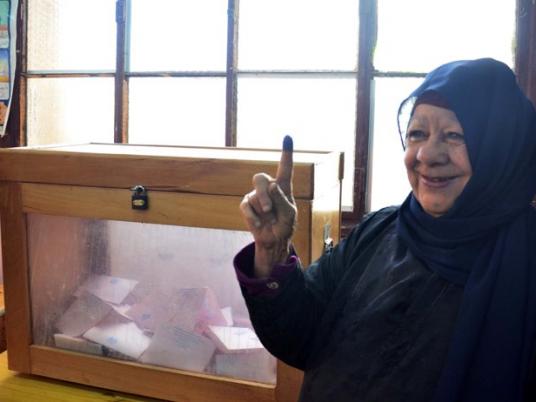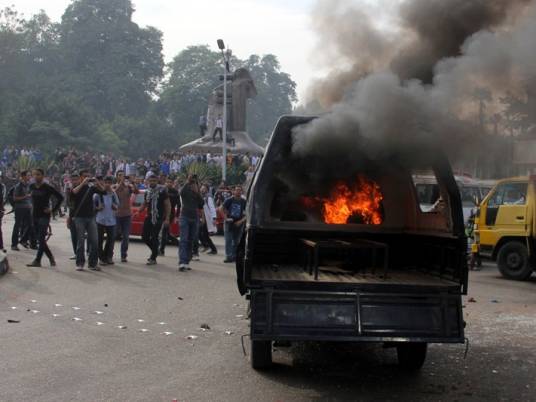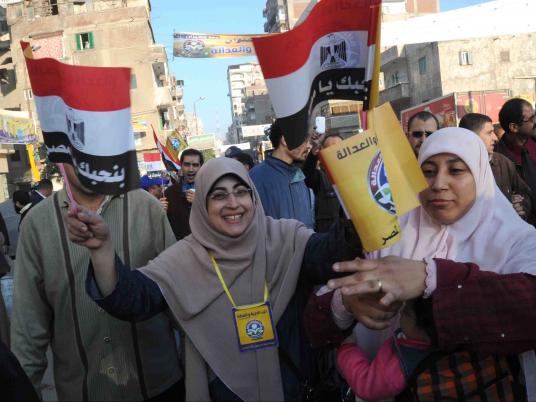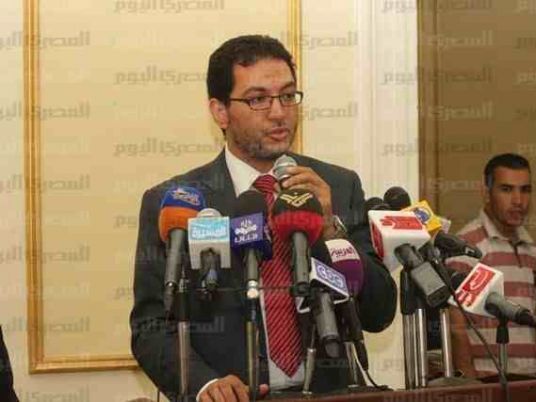
A headline in privately owned Al-Tahrir that sums up one of the major aspects of Egypt’s first parliamentary elections after the ouster of former President Hosni Mubarak.
The headline reads, “The Egyptian people, who impressed the world, were absent from the run-offs.”
The run-offs of the first round of elections were held on Monday and Tuesday, during which heated contests were supposed to emerge between the Muslim Brotherhood’s Freedom and Justice Party (FJP) and their ultraconservative rivals, the Salafi-led Nour Party. According to the paper, battles were also supposed to take place in constituencies in which Islamists faced secular candidates.
But instead there was “a sudden disappearance of supporters of the Brotherhood and the Salafis.”
Nabil Abdel Fattah, an expert at Al-Ahram Center for Political and Strategic Studies, told Al-Tahrir that voters perceived the run-offs as an internal battle between Islamists, so cared little about them.
Al-Tahrir highlights a statement by Abdel Moez Ibrahim, head of the High Elections Commission (HEC), in which he amended the turnout figure for the first stage of parliamentary elections.
“The accurate percentage of attendance in the first round was 52 percent, not 62 percent," the paper quoted him as saying.
The election process occupies all of Tuesday's papers, covering minor voting irregularities from the first two days of elections.
The liberal party-run Al-Wafd documents various incidents of election irregularities, such as attempts to rig votes for certain candidates.
Al-Wafd says the HEC has received many complaints that a specific party (in reference to the FJP) was organizing its supporters in front of polling stations to tell voters to support its local candidate. Electoral campaigning in front of polling stations is illegal, but according to Al-Wafd, FJP members continued to do so, using religious propaganda to convince people to vote for their candidates. The paper says this violates the HEC regulation banning the use of religion in electoral campaigning.
But the FJP’s newspaper, Freedom and Justice, tries to dismiss these accusations, saying on its front page that FJP members were not involved in any illegal acts during the run-offs.
The Islamist daily goes even further in accusing Copts of staging campaigns against the FJP in polling stations.
The paper says that “some Copts” filed a complaint against the FJP accusing the party of staging illegal campaigns. The party replied by filing another complaint against “some Copts,” accusing them of doing the same.
But today’s papers don't only focus on electoral irregularities; they also continue to voice concerns over Islamists taking a plurality of list-based seats in the first round.
In a lengthy article, privately owned Al-Shorouk asks if the rise of Islamists will repeat the Algerian scenario. Following the 1990 parliamentary elections in Algeria in which the Islamic Salvation Front (FIS) won 80 percent of the seats, the military junta rejected the results and launched a deadly crackdown against Islamist militants. The ensuing conflict claimed the lives of some 200,000 people.
Political scientist Gamal Zahram tells Al-Shorouk that the rise of Islamists in Egypt threatens a repeat of the Algerian scenario, unless Islamist forces change their conceptions to further acknowledge democracy, as well as religious and individual freedoms.
However, in state-run Al-Akhbar, columnist Sameer Gharib says that the rise of Islamists through parliamentary elections is a temporary phenomenon. He argues that moderate forces launched the revolution, and they need time to cultivate a grassroots base of support.
In a short period of time, Gharib writes, the popularity of Islamist forces will decline and the young and moderate forces who actually toppled Mubarak will rise.
Egypt's papers:
Al-Ahram: Daily, state-run, largest distribution in Egypt
Al-Akhbar: Daily, state-run, second to Al-Ahram in institutional size
Al-Gomhurriya: Daily, state-run
Rose al-Youssef: Daily, state-run
Al-Dostour: Daily, privately owned
Al-Shorouk: Daily, privately owned
Al-Wafd: Daily, published by the liberal Wafd Party
Youm7: Daily, privately owned
Al-Tahrir: Daily, privately owned
Freedom and Justice: Daily, published by the Muslim Brotherhood's Freedom and Justice Party
Sawt al-Umma: Weekly, privately owned
Al-Arabi: Weekly, published by the Nasserist Party




